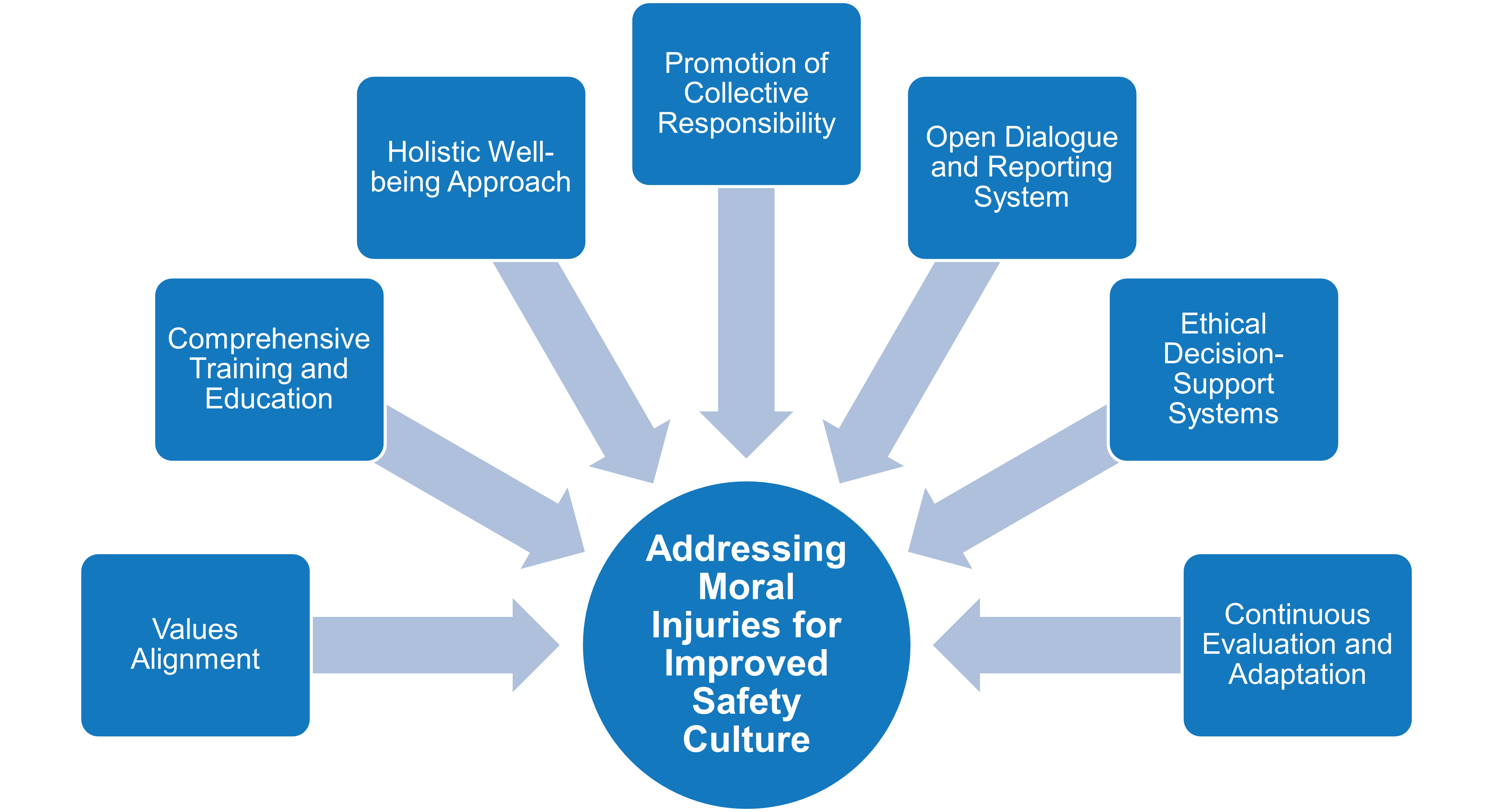May 06 2024
By: Shawn M. Galloway
Workplace culture is not immune to a less-discussed yet significant issue - moral injuries. These injuries, unlike physical ones, stem from the psychological and ethical aspects of an employee's well-being. They occur when an individual's deeply held moral or ethical beliefs are challenged, a phenomenon that is more common than we might think.
Originally associated with military experiences, the concept of moral injury has expanded to other areas, such as healthcare, law enforcement, and the workplace. When employees perceive a disconnect between the organization's stated values and actual practices, moral injuries can arise at work. This erodes trust and compromises the overall safety culture.
The impact of moral injuries on the safety culture is significant. They lead to a loss of trust, reduced employee morale and engagement, and implications for psychological well-being, psychological safety, and the reputation of the organization. Moral injuries can also contribute to employee burnout, emphasizing the importance of meaningful work connections to prevent burnout and maintain psychological well-being.
Strategies such as aligning values, providing comprehensive training and education, adopting holistic well-being approaches, encouraging collective responsibility, fostering open dialogue and reporting systems, implementing ethical decision-support systems, and continuously evaluating and adapting are not just theoretical concepts.  They are practical tools that can mitigate the impact of moral injuries and create a workplace environment that prioritizes physical safety, ethical values, and employee well-being.
They are practical tools that can mitigate the impact of moral injuries and create a workplace environment that prioritizes physical safety, ethical values, and employee well-being.
By integrating the lessons learned from moral injuries into safety programs, organizational practices, and efforts to foster psychological safety, we can build resilient and sustainable work environments that prioritize both physical and moral well-being. This proactive approach will boost employee morale, strengthen commitment to safety, and ultimately enhance the safety culture within the organization. The positive outcomes are not just a possibility but a tangible result of your efforts. If you truly care about your people, put the potential for moral injuries on your radar.
"Moral injury is the damage done to one's conscience or moral compass when that person perpetrates, witnesses, or fails to prevent acts that transgress one's own moral beliefs, values, or ethical codes of conduct." — The Moral Injury Project at Syracuse University
"The only way to truly heal from a moral injury is through acts of service, doing good deeds for others in need." — Matt Zeller, Veteran, US Army

Shawn M. Galloway is the CEO of ProAct Safety and an advisor to leading organizations across all major industries. With over twenty years of experience in safety systems, strategy, culture, leadership, and employee engagement, he is a trusted advisor, keynote speaker, and expert witness.
He is the author of several bestselling books and has multiple regular columns in leading magazines, with over 400 articles and 100 videos to his credit. He also created the first safety podcast, Safety Culture Excellence, with over 800 episodes. Shawn has received numerous prestigious accolades and has been featured in Power 101 Leaders of the EHS World, Top 50 People Who Most Influenced EHS, Top 40 Rising Stars, Top 11 Health and Safety Influencers, and Top 10 Speakers.
He serves on the Harvard Business Review Advisory Council and the Fast Company Executive Board. He has appeared as a guest on Bloomberg, Fox News, The Daily Mail, Dubai One, U.S. News & World Report, Sirius Business Radio, Wharton Business Daily, and leading safety magazines and podcasts, reinforcing his status as an authority in the field of safety excellence.
For more information, call +1.936.273.8700 or email info@ProActSafety.com.
